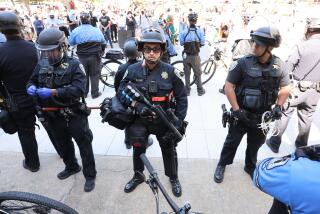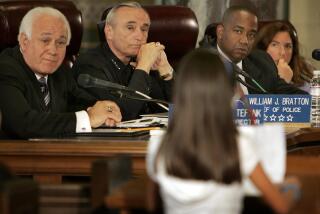Police Reform Crucial for Ulster
- Share via
Northern Ireland’s restored home-rule Assembly is back at work but faces renewed strains between Catholics and Protestants over police reform in the British province.
Last fall, a report prepared by former Hong Kong Gov. Chris Patten established a blueprint for reformation of the provincial police, but the draft legislation needed to implement the recommendations is seriously flawed, diluting many of Patten’s proposals.
The current police force is 93% Protestant, while the population of the province’s six counties is nearing parity between Protestants and a growing Catholic total. The police inequity must be remedied.
Also among the matters at issue are human rights provisions that deal with accountability of the proposed police regime. Too much power is invested in the chief constable. Civilian oversight and democratic accountability of the police ought to be strengthened.
The more moderate leaders in Ulster, like Seamus Mallon of the Social Democratic and Labor Party, insist that change is essential. Mallon is one of those who support the Patten report’s call for a deal that’s “effective, representative and, most of all, acceptable to all parts.”
Following in the footsteps of former Sen. George Mitchell, Tom Constantine, another American, has been appointed to oversee the creation of the new police service. Constantine, a former head of the U.S. Drug Enforcement Administration, will need all his political skills to help untangle the difficult but essential issue of security as Ulster’s politicians take up the challenges of governing the province through the newly reconstituted Assembly. Constantine and the Assembly have the same task: to build institutions that operate on the basis of equality and respect between both communities.
More to Read
Sign up for Essential California
The most important California stories and recommendations in your inbox every morning.
You may occasionally receive promotional content from the Los Angeles Times.













